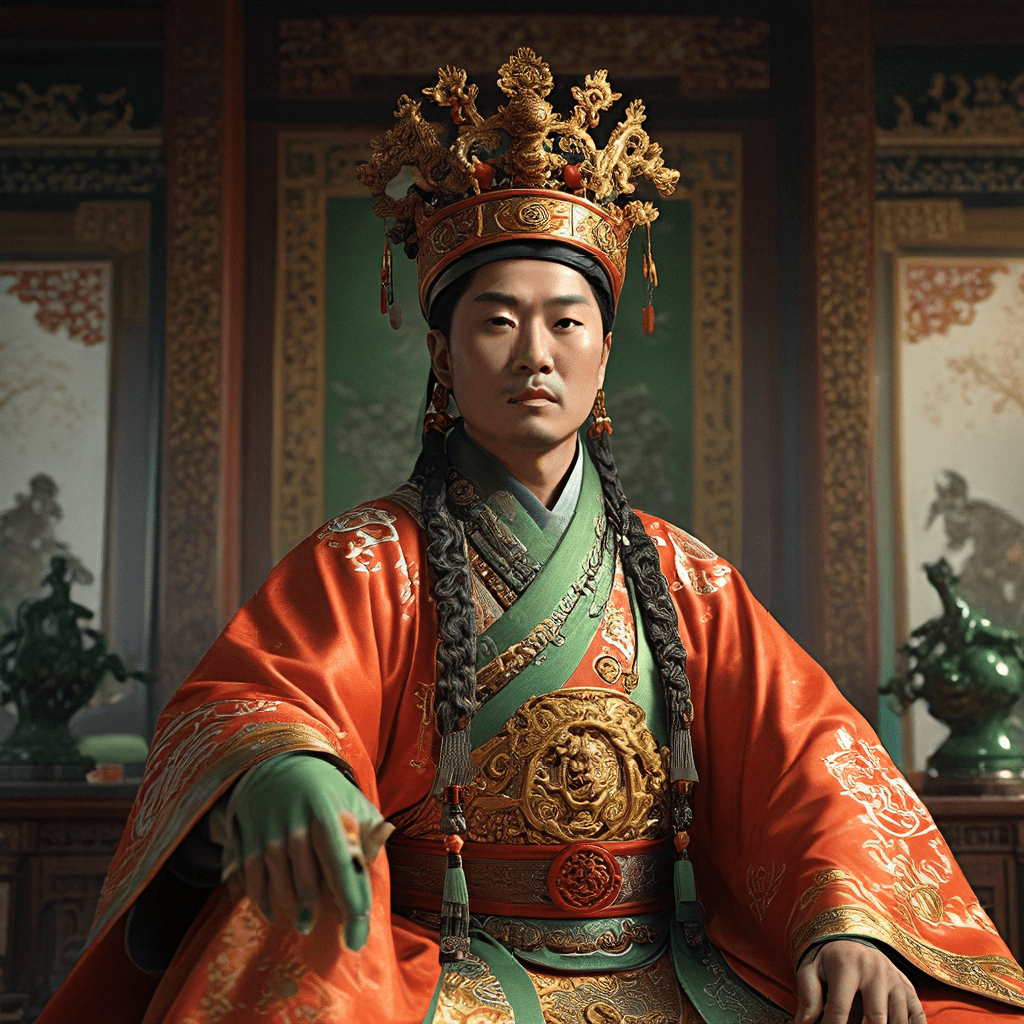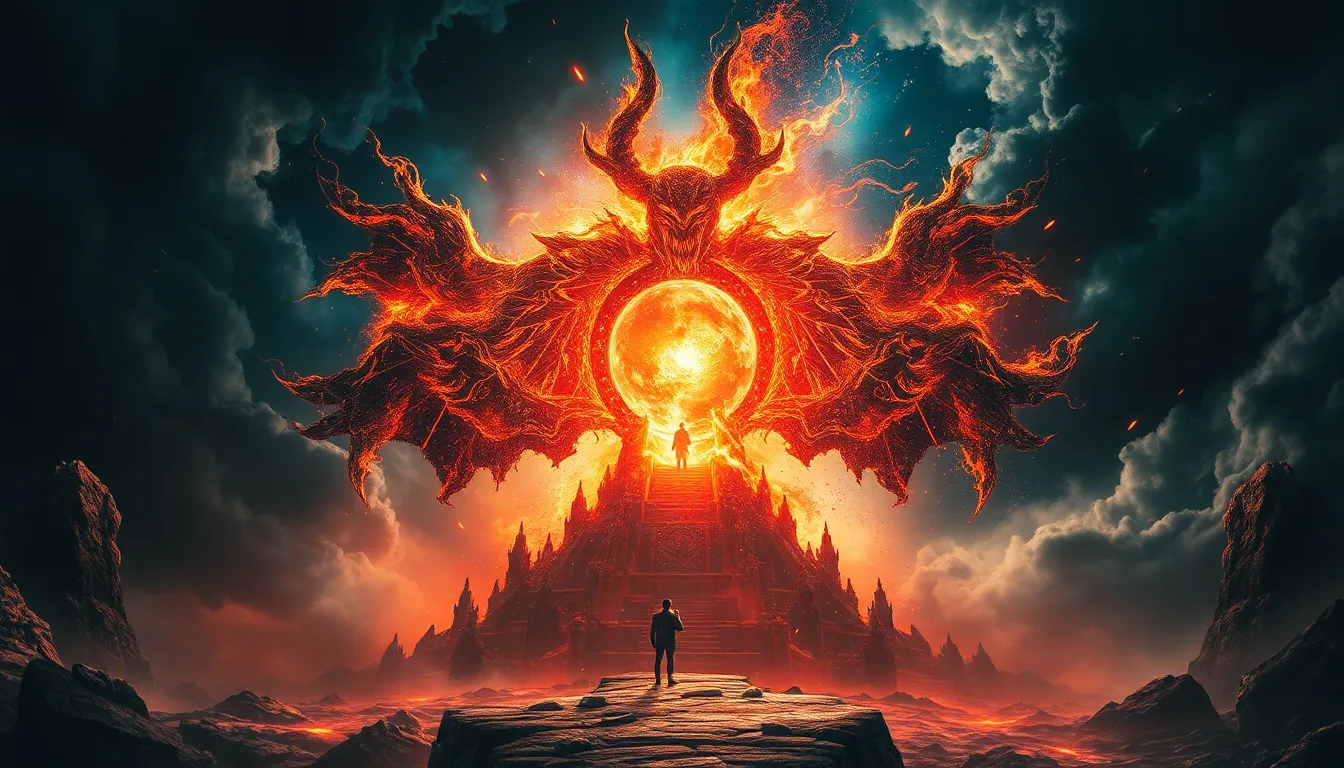The Jade Emperor: A Tale from Korean Mythology
The Jade Emperor’s Role in Korean Mythology
In Korean mythology, the Jade Emperor, also known as the "Hwangcheon Ok Hwang" or "Heaven's Jade Emperor," is a powerful and revered figure. He holds a prominent position as the supreme ruler of the heavens, overseeing all celestial beings and divine affairs. The Jade Emperor's vast authority extends beyond the heavenly realm, shaping the destinies of mortals and influencing the natural world. He serves as a divine judge, a celestial protector, and a symbol of order and cosmic balance in Korean mythology.
The Jade Emperor’s Power and Authority
The Jade Emperor's power is vast and absolute. He is believed to have dominion over all of creation, including the heavens, Earth, and the underworld. He controls the natural forces, governs celestial bodies, and oversees the cycle of life and death. He is also responsible for maintaining harmony and order in the universe. His power is often likened to that of a divine king or emperor, wielding absolute authority over all beings and realms.
The Jade Emperor’s Origin and Creation
The origins of the Jade Emperor are shrouded in mystery and divine lore. Some accounts suggest he was born from the primordial essence of the universe, representing the ultimate divine power. Others depict him as a celestial being who emerged from a celestial egg or was chosen by the divine forces to rule the heavens. Regardless of his exact origins, the Jade Emperor is considered a divine being created by the cosmic forces that brought the universe into existence.
The Jade Emperor’s Relationship with the Mortal Realm
Despite his celestial stature, the Jade Emperor maintains a close connection with the mortal realm. He is seen as a benevolent ruler who cares for the well-being of humans. He sends down blessings, dispenses justice, and intervenes in human affairs when necessary. He is also believed to be the ultimate arbiter of fate, determining the destinies of mortals and granting them rewards or punishments based on their actions.
The Jade Emperor in Korean Folktales and Legends
The Jade Emperor appears frequently in Korean folktales and legends, often serving as a wise and benevolent figure. He is depicted as a just ruler who resolves conflicts, protects the innocent, and punishes the wicked. Many stories feature the Jade Emperor's interventions in human affairs, showcasing his power and his concern for the well-being of mortals. His presence in these tales reflects the profound influence he has had on Korean folklore and mythology.
The Jade Emperor’s Symbolism and Meaning
In Korean mythology, the Jade Emperor embodies several important themes and concepts. He represents the ultimate power and authority, symbolizing the divine force that governs the universe. He also embodies the principles of justice, order, and balance, ensuring harmony and fairness in the cosmos.
The Jade Emperor's name, "Hwangcheon Ok Hwang," literally translates to "Heaven's Jade Emperor," highlighting his connection to the celestial realm and his embodiment of purity and wisdom. The jade stone, often associated with virtue and purity in many cultures, reflects the Jade Emperor's divine nature and his role as a guardian of righteousness.
The Jade Emperor’s Influence on Korean Culture and Religion
The Jade Emperor's influence extends deeply into Korean culture and religion. He plays a significant role in various traditional beliefs and practices, including ancestor worship, shamanism, and Confucianism. His presence is felt in various aspects of Korean life, from folktales and myths to art and architecture.
In Korean shamanism, the Jade Emperor is considered a powerful deity who can be invoked for blessings, protection, and guidance. He is also venerated in Confucianism, where he represents the ultimate ruler and embodies the ideals of ethical conduct and social harmony. The Jade Emperor's influence can be seen in the hierarchical social structures of traditional Korean society, where respect for authority and order is highly valued.
The Jade Emperor in Korean Art and Literature
The Jade Emperor's image frequently appears in Korean art and literature, showcasing his enduring presence in the cultural imagination. He is often depicted in paintings, sculptures, and traditional dramas, typically wearing a majestic robe and a crown adorned with jade stones.
In Korean literature, the Jade Emperor features prominently in various myths, legends, and folktales, often serving as a wise and benevolent figure who dispenses justice, protects the innocent, and guides mortals towards righteousness. His presence in these tales reflects his enduring influence on Korean storytelling and the importance he holds in the cultural narrative.
Theories on the Jade Emperor’s Origins
While the Jade Emperor's exact origins remain shrouded in mystery, various theories attempt to explain his presence in Korean mythology. Some scholars suggest that the Jade Emperor is a development of the ancient Korean belief in a supreme deity who rules the heavens. Others propose that he is influenced by Chinese mythology, where the Jade Emperor is also a significant figure.
Regardless of his precise origins, the Jade Emperor's presence in Korean mythology is a testament to the enduring human fascination with the divine and the desire for cosmic order. He represents the ultimate authority, embodying the principles of justice, harmony, and the interconnectedness of all things.
The Jade Emperor’s Connection to Other Mythological Figures
The Jade Emperor is interconnected with various other figures in Korean mythology, creating a complex and interconnected web of divine beings. He is often depicted as the supreme ruler of the heavens, overseeing all other celestial beings, including the Dragon King, the Mountain Spirits, and the Four Heavenly Kings, each of whom holds specific roles in the cosmic order.
His relationship with these figures underscores the importance of hierarchy and order in Korean mythology. The Jade Emperor's authority extends over all realms, ensuring harmony and balance between the heavens, Earth, and the underworld. His connection to these other mythical figures highlights the interconnectedness of all things in the divine realm and the importance of maintaining order and justice in the universe.
FAQ
Q: Is the Jade Emperor a good or bad deity?
A: In Korean mythology, the Jade Emperor is generally considered a benevolent and just ruler. He is known for dispensing justice, protecting the innocent, and ensuring order in the universe.
Q: What is the Jade Emperor's role in Korean ancestor worship?
A: The Jade Emperor plays a crucial role in Korean ancestor worship. He is believed to oversee the spirits of the deceased, ensuring their well-being and guiding them in the afterlife.
Q: How is the Jade Emperor portrayed in Korean art?
A: The Jade Emperor is often depicted in Korean art as a powerful and majestic figure wearing a luxurious robe and a crown adorned with jade stones. He is typically seated on a throne, symbolizing his supreme authority.
Q: Are there any specific festivals or rituals dedicated to the Jade Emperor?
A: While there aren't specific festivals dedicated solely to the Jade Emperor, he is often invoked during various traditional ceremonies and rituals, particularly those related to ancestor worship and shamanism.




